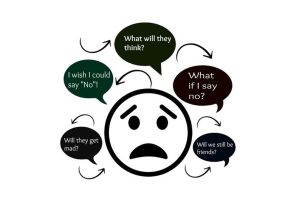Are you a ‘people pleaser’?
- Home
- Resources

People-pleasing is a behavior characterized by a strong desire to gain the approval, acceptance, or validation of others, often at the expense of one’s own needs, values, and boundaries. People-pleasers tend to go to great lengths to make others happy, avoid conflict, and maintain a harmonious atmosphere, even if it means sacrificing their own well-being or authenticity. Here are some key aspects and characteristics associated with people-pleasing:
- Excessive Agreeability: People-pleasers have a tendency to say “yes” to requests and commitments, even when it’s inconvenient or detrimental to them. They often fear disappointing or upsetting others.
- Difficulty Saying No: Saying “no” can be extremely challenging for people-pleasers. They may worry about being perceived as selfish or rude if they decline requests or express their own needs.
- Seeking Validation: People-pleasers often seek external validation and praise to feel good about themselves. They rely on others’ opinions to gauge their self-worth.
- Avoiding Conflict: They go out of their way to avoid conflicts or confrontations. This can lead to suppressing their own feelings or needs to maintain peace.
- Overcommitting: People-pleasers may overextend themselves by taking on too many tasks or responsibilities, leading to stress and burnout.
- Low Self-Esteem: This behavior often stems from low self-esteem and a fear of rejection. People-pleasers may believe that meeting others’ needs is the only way to be liked or loved.
- Difficulty Expressing Authenticity: They may have trouble expressing their true thoughts, feelings, or opinions because they fear disagreement or disapproval.
- Neglecting Self-Care: People-pleasers may prioritize the needs of others over their own self-care, which can lead to physical and emotional exhaustion.
Over time, excessive people-pleasing can have negative consequences for one’s mental and emotional well-being. It can also lead to feelings of resentment, as people-pleasers may harbor unexpressed anger or frustration.
It’s important for individuals who recognize these behaviors in themselves to work on developing healthy boundaries, assertiveness skills, and self-esteem. Therapy and self-help resources can be valuable tools in overcoming the patterns associated with people-pleasing and learning to prioritize one’s own needs and authenticity while maintaining healthy relationships.







